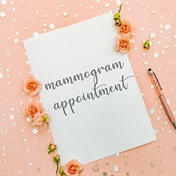
Breast cancer patients of different races and ethnicities may not pick surgeons and hospitals in the same way, a new study suggests.
Disparities very complex
For example, black and Hispanic women with breast cancer were less likely than white women to select surgeons and hospitals based on reputation, researchers found.
The differences in how people select healthcare providers may help explain racial differences in use, delivery and quality of medical care, the researchers write in JAMA Oncology.
"Disparities in breast cancer and cancer care are very complex," said Dr. Rachel Freedman, the study's lead author from the Dana-Farber Cancer Institute in Boston.
Read: Risk factors for breast cancer
She and her colleagues asked 222 non-Hispanic white women, 142 non-Hispanic black women and 136 Hispanic women from Northern California to identify the reasons they chose their surgeons and hospitals. The women were diagnosed with breast cancer between 2010 and 2011.
Overall, most women said they chose their surgeon based on their doctors' recommendations, and they picked their hospital because of their health plan.
On closer analysis, the researchers found 19 percent of black women and 87 percent of Spanish-speaking Hispanic women listed their doctors' recommendations as a reason for selecting their surgeons, compared to 76 percent of white women.
White women more active
Overall, they found that black and Hispanic women were less likely than white women to factor in the reputation of their surgeons and hospitals when making their choices. Minority women, however, more often said they factored in their doctors' recommendations.
"We also noted that white women were more likely to select multiple reasons than one or two reasons for hospital or provider selections," Freedman said.
"We don't know the reasons for that, but what that may suggest is that white women may be more active in selecting providers when determining their cancer care."
Read: Diagnosed with breast cancer at 15
While they can't say how these differences factor into later care, Freedman said the recommendations from doctors may become very important and determine women's remaining care.
"Its possible that initial point of referral is very important for treatment and trajectory," she said.
The next step would be to look at what kinds of care the women are getting to get a better understanding of how this all matters, Freedman said, adding that doctors may need to tailor their approaches for different women.
More passive style
She said there may not be anything wrong with a more passive style of doctor and hospital selection they found among black and Hispanic women, she said.
"We just don't know," she said, adding that existing literature suggests people who are more active in healthcare are also more engaged.
Read: Breast cancer outcomes vary according to race
"Not all patients operate that way and can still get good care," Freedman said.
Read More:
Tattoos help conceal breast reconstruction scars
What you should know about testing for BRCA breast cancer genes
Image: Different women wearing breast cancer ribbons from Shutterstock




 Publications
Publications
 Partners
Partners















